
BBC Sky at Night Magazine
GEAR
Charlotte Daniels rounds up the latest astronomical accessories
1 min |
February 2025

The Week Junior Science+Nature UK
MAX POWER
From the second you wake up in the morning, your way of life is made possible thanks to the amazing power of electricity.
5 min |
January 2025
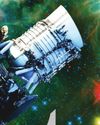
The Week Junior Science+Nature UK
That's amazing! The best discoveries, inventions and surprises
Asteroid telescope's final images revealed
2 min |
January 2025

The Week Junior Science+Nature UK
FUNNY BY NATURE
Claire Karwowski tracks down the wackiest wildlife that's cracking up the animal kingdom.
5 min |
January 2025

How It Works UK
BUILDING THE WORLD'S DEEPEST CAR PARK
Australia's most famous landmark is often marvelled at from ground level, but its innovative spiral substructure is a hidden gem
2 min |
Issue 198
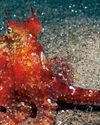
How It Works UK
Octopuses burn more calories changing colour than you do on a 23 minute run
For octopuses, changing colour burns about as many calories as a human on a 23-minute run. Octopuses are masters of disguise, changing colour at the drop of a hat to startle predators and hide from prey.
2 min |
Issue 198

How It Works UK
Mountain lions in Los Angeles are becoming nocturnal
Mountain lions are prowling Greater Los Angeles at night to avoid humans exercising on their mountains.
2 min |
Issue 198
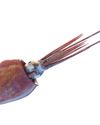
How It Works UK
FINDING THE COLOSSAL SQUID
This elusive creature spawned a legend of a deep-sea monster that endured for centuries
2 min |
Issue 198
How It Works UK
The world's first silicon-anode battery could revolutionise electronic vehicles
A ceramic battery manufacturer has unveiled a solid-state battery concept that can be charged from 5 to 60 per cent capacity in just five minutes, giving future electric vehicles (EVS) a 186-mile range in the time it takes to order a coffee.
1 min |
Issue 198

How It Works UK
The world's largest organism may have been growing for 80,000 years
Pando, an enormous quaking aspen that spans more than 40 hectares in Utah, is not only one of the largest known organisms on Earth, it's also one of the oldest.
2 min |
Issue 198

How It Works UK
New technology gives AI the power to feel surfaces
Scientists have given artificial intelligence (AI) the capacity to 'feel' surfaces for the first time, opening up a new dimension for deploying the technology in the real world.
1 min |
Issue 198
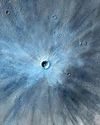
How It Works UK
INCREDIBLE SOLAR SYSTEM CRATERS
Why these spectacular craters carved out by past impact events are among the most widespread and distinctive geological features in the Solar System
7 min |
Issue 198

The Week Junior Science+Nature UK
Guardians of the forest
Meet the incredible people protecting the Amazon rainforest.
1 min |
January 2025

The Week Junior Science+Nature UK
The Mariana Trench
Dive in to find out how far down the ocean goes and what it's really like at the bottom.
2 min |
January 2025

The Week Junior Science+Nature UK
WEIRD SCIENCE
A round-up of the strangest science stories from around the world.
1 min |
January 2025

The Week Junior Science+Nature UK
Megan McCubbin
Meet the zoologist trying to change people's views of animals with a bad rep.
3 min |
January 2025

The Week Junior Science+Nature UK
Could people turn Mars into another Earth?
Sven Bilén explores how humans might make a home on another world.
3 min |
January 2025

The Week Junior Science+Nature UK
Are cats smarter than dogs?
They're the UK's top pets, but which is more intelligent? You decide!
1 min |
January 2025

The Week Junior Science+Nature UK
Ethiopian wolves could be furry pollinators
Sweet-toothed Ethiopian wolves have been seen lapping up nectar have been seen happing up nectar from red hot poker flowers.
1 min |
January 2025

The Week Junior Science+Nature UK
Your heart has a "brain"
New research by scientists at Sweden, and Columbia University, in the US, suggests that your heart could have its own \"mini brain\".
1 min |
January 2025
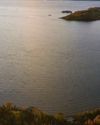
How It Works UK
HOW NORTH AMERICA'S GREAT LAKES FORMED
The world's largest freshwater system comprises five immense interconnected lakes, carved into Earth by glaciers
5 min |
Issue 198
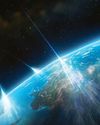
How It Works UK
Scientists detect the most powerful cosmic rays ever
Scientists have detected the most energetic cosmic rays ever discovered, and they're being produced by mysterious sources relatively close to Earth.
2 min |
Issue 198

How It Works UK
Visit Plane Earth 2125
How might our world have transformed under the strain of climate change 100 years from now?
4 min |
Issue 198
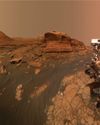
BBC Science Focus
IMAGES OF THE CENTURY
THE WORLD IS FULL OF WONDERS, AND HIGH-RESOLUTION CAMERAS LET US SEE THEM IN UNPRECEDENTED DETAIL.
9 min |
January 2025
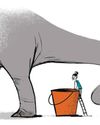
BBC Science Focus
Poop and vomit reveals how dinosaurs got so big
It wasn't meat but plant-based diets that helped dinosaurs rise to the top
1 min |
January 2025

BBC Science Focus
WHAT DETERMINES HOW MANY ABS I CAN GET?
Assuming you're a human being, you have exactly the same number of abs as everybody else: two.
2 min |
January 2025

BBC Science Focus
THE WORST IDEAS OF THE 21ST CENTURY
NOT ALL IDEAS CAN BE HITS. ALONGSIDE GROUND-BREAKING INNOVATIONS, 21ST-CENTURY SCIENTISTS HAVE HELMED THEIR SHARE OF WILD TECH FLOPS, DUBIOUS THEORIES AND OVERHYPED BREAKTHROUGHS. HERE ARE THE BIGGEST TO FORGET
6 min |
January 2025

BBC Science Focus
Could your cosmetics be harming your health?
Cosmetic companies are phasing out microplastics and so-called 'forever chemicals' to help protect consumers.
4 min |
January 2025
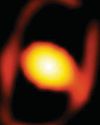
BBC Science Focus
Star outside our galaxy imaged for first time
Scientists have captured a close-up of WOH G64
1 min |
January 2025
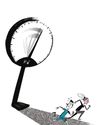
BBC Science Focus
Key weight-loss mystery solved
New research suggests fat cells have a 'memory'
1 min |